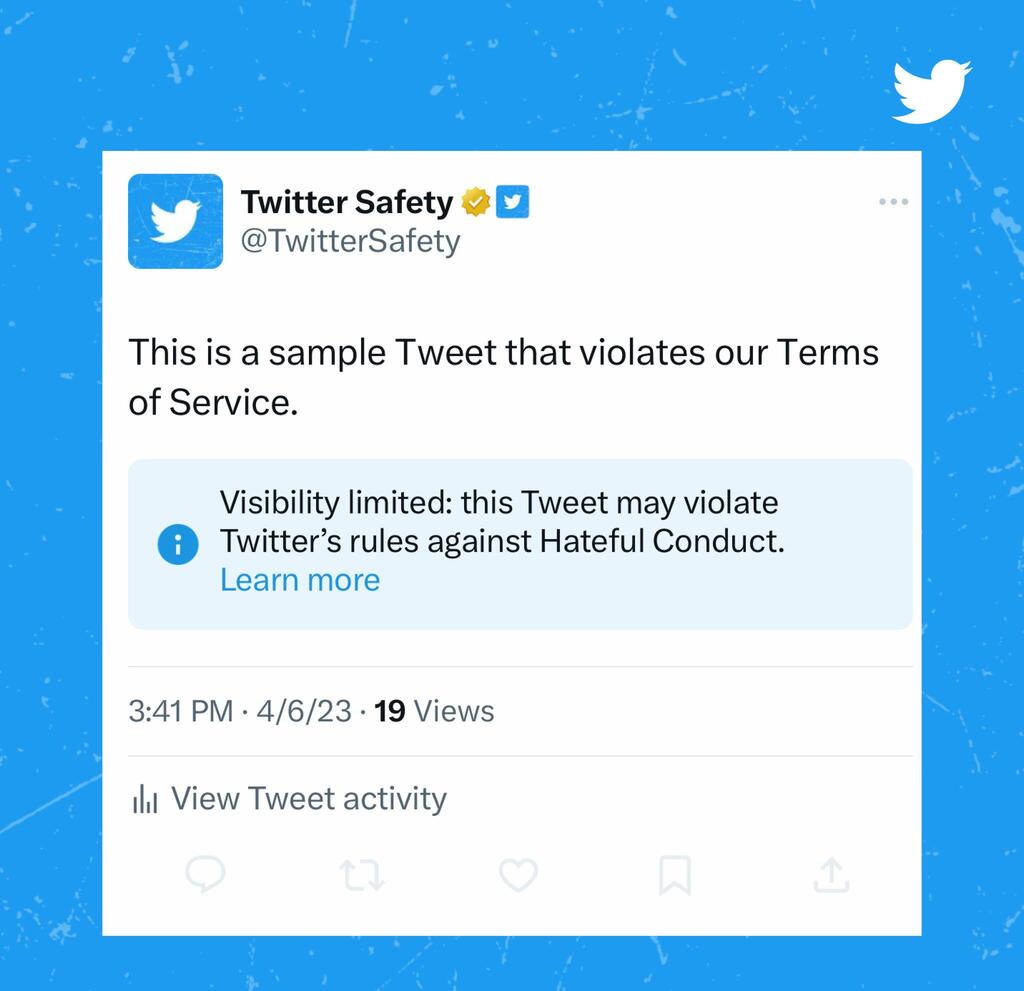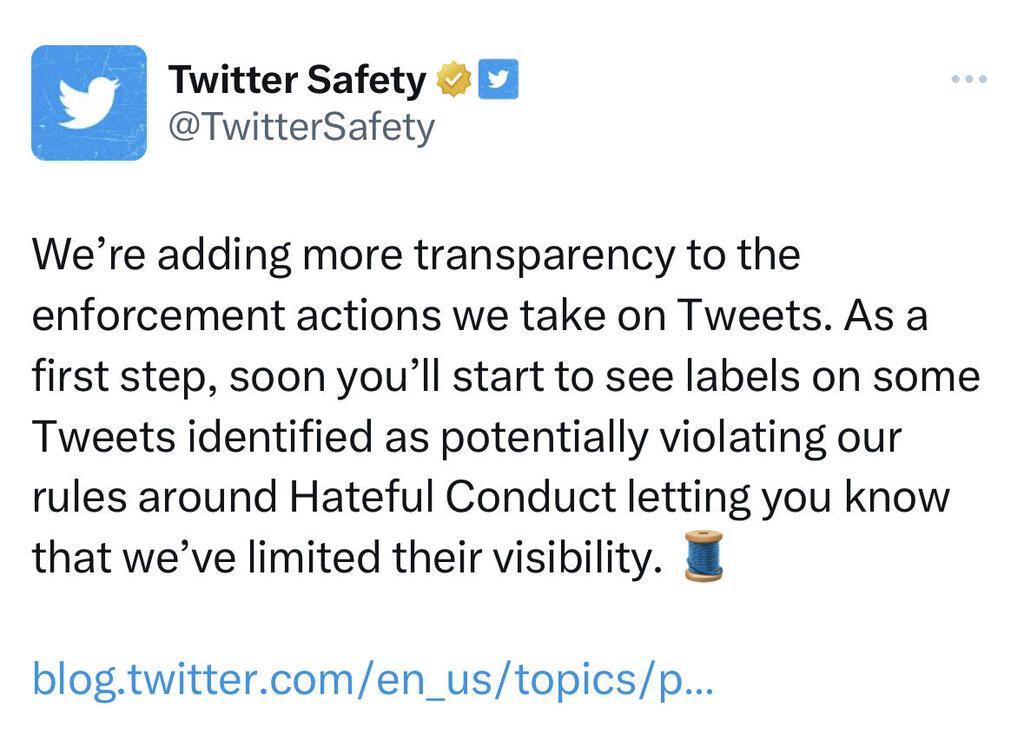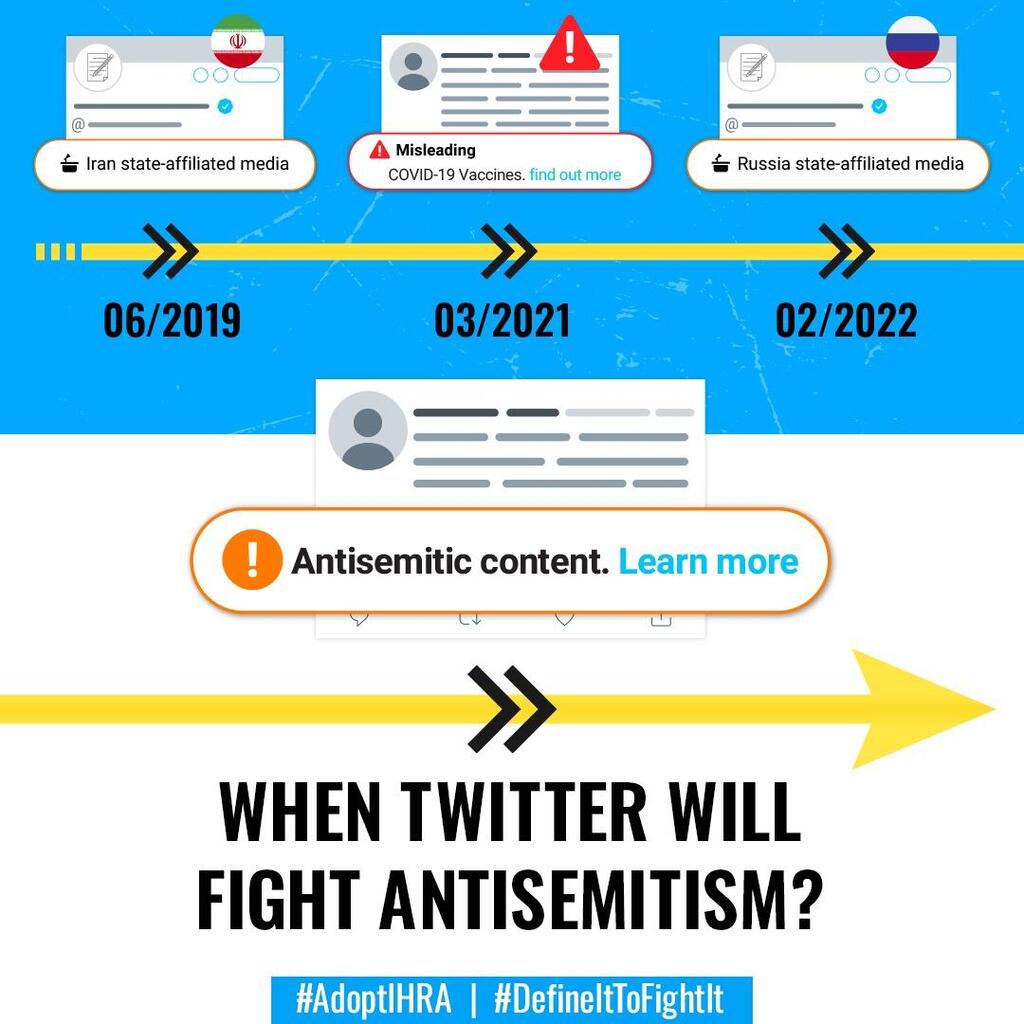On the eve of Israel’s Holocaust Memorial Day, Twitter announced they are unveiling a new policy to fight hate speech on the platform titled “Freedom of Speech Not Freedom of Reach.”
Other stories:
The policy will reduce the organic reach of tweets that violate or may violate Twitter’s existing hate speech standards, and advertisements will not be displayed next to such content.
“Starting soon, we will add publicly visible labels to tweets identified as potentially violating our policies letting you know we’ve limited their visibility,” said Twitter.
The policy change comes in the aftermath of a sharp increase in antisemitism on Twitter according to multiple recent reports analyzing online hate speech. Data reported by the organization Fighting Online Antisemitism (FOA) revealed that there was an increase of 180% in online antisemitism in 2022, and furthermore that Twitter’s removal rate of hate speech has actually decreased by 50% since Elon Musk took over.
In their statement, Twitter outlined several specific examples of what this new policy would look like and what constitutes hate speech, specifically mentioning the Holocaust as an example of genocide.
Twitter further added that harassing victims of the Holocaust, using Nazi symbols, and adding yellow stars to photos to co-opt the Holocaust would all be examples of content that would have diminished exposure as well as a warning label.
In the event a tweet is limited in error, Twitter said that users will be able to submit feedback should they believe their content is not a violation of Twitter’s hate speech standards.
While the examples described by the platform are broad, the examples shown in the statement explicitly refer to antisemitism.
“Some examples of hateful imagery include: symbols historically associated with hate groups, e.g., the Nazi swastika…images altered to include hateful symbols or references to a mass murder that targeted a protected category, e.g., manipulating images of individuals to include yellow Star of David badges, in reference to the Holocaust,” said Twitter.
Is Twitter Responding to Activists?
The policy change likely comes in response to a campaign by over 180 Jewish and pro-Israel organizations who signed a letter to Twitter CEO Elon Musk several months ago, urging the platform to adopt the International Holocaust Remembrance Alliance (IHRA) definition of antisemitism and to level to antisemitic content rather than removing it.
This effort was part of an ongoing initiative by these organizations to hold social media platforms accountable for the proliferation of online antisemitism by urging the adoption of the IHRA definition to help identify antisemitism, and label it appropriately. The core message of the #AdoptIHRA campaign is “education, not censorship.”
Patricia Teitelbaum, chair of International Movement for Peace and Coexistence (IMPAC) and one of the signatories of the letter to Elon Musk, told Ynet that this policy change is a step in the right direction but more should be done.
"IMPAC welcomes the announcement by Twitter Safety that it has not been transparent when responding to those who report tweets for violation of its rules. We further welcome the clarifications and exemplifications which, if applied consistently, should increase the number of antisemitic tweets removed or degraded and accounts suspended or removed," she said.
"The University of Vermont was recently required by the US Department of Education to recognize and address anti-Zionist harassment as a form of national origin discrimination on the basis of shared ancestry. But the fact that Twitter says it will not take action against tweets from pro-BDS accounts since it considers such tweets to be political, suggests that hatred of Israel will continue to be viewed as a legitimate expression of free speech..."
The change will be implemented this week for Twitter’s “hateful conduct” policy, but the platform also noted that they plan to expand the labeling of tweets to additional categories of violations in the future.





